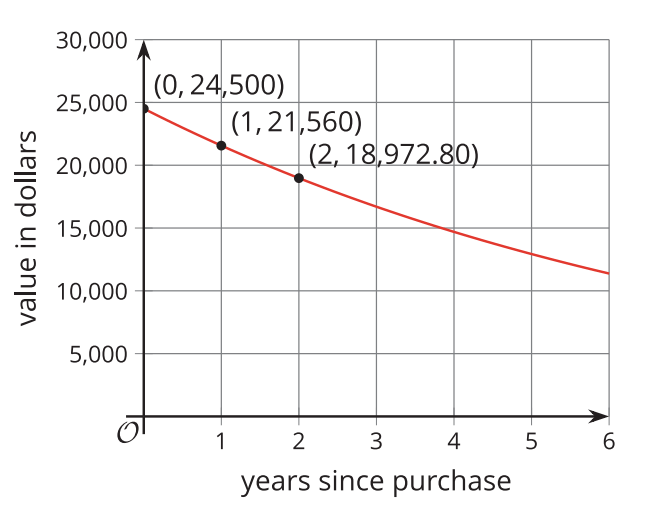What's growth rate for f(x)=10^x?
10
Which is the largest? e^2,e^3,2^2,2e
e^3
\log_5(625) =?
4
\ln(x)=100
The natural log of x is 100
10^{(n+1)}=1000000
n=2
Growth/decay? 100\cdot(1-0.1)^n
10% decay.
True/False: e^x is always increasing
True
\log_3(27) =?
3
\log_2(64)
The log, base 2, of 64
\log_{10}(x)=6
1000000
Growth factor of trapezoids:

4
1\cdot(1+0.00001)^100000 =?
\approx e
1024^\frac1{10} =?
2
\log_10(1)=0
The log, base 10, of 1 is 0
e^y=10
y=2.30
Growth/Decay factor:

Decay 88%
The inverse of e^x
\ln(x)
10^-\frac1{5} =?
0.00001
10^2.6\approx400
10, raised to the power 2.6 is approximately 400.
6\cdot10^t=360
t=\log60
Growth/decay factor: Number of germs reducing by 30% after each washing cycle.
Decay 0.7
e^\ln(x) =?
x
\log_100(10) =?
\frac1{2}
\log_10(1000,000,000,000)
The log, base 10, of 1 trillion
\frac1{4}\cdot10^{(d+2)}=0.25
d=-2